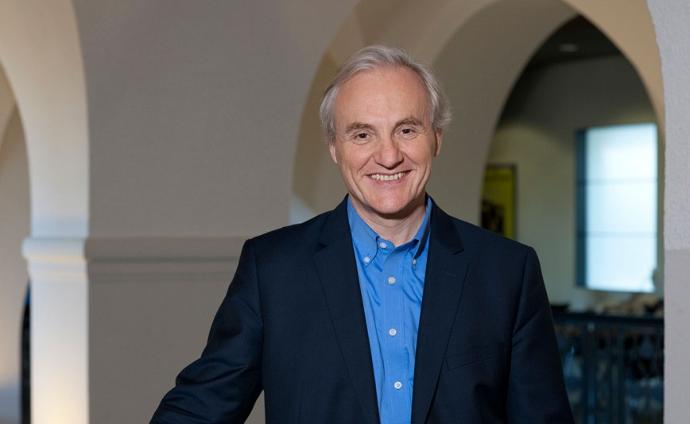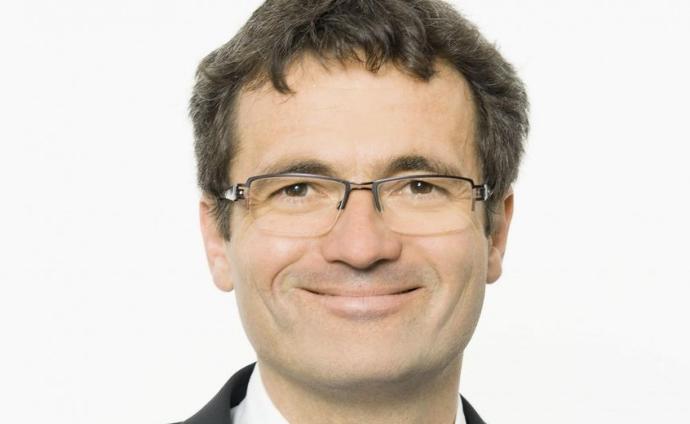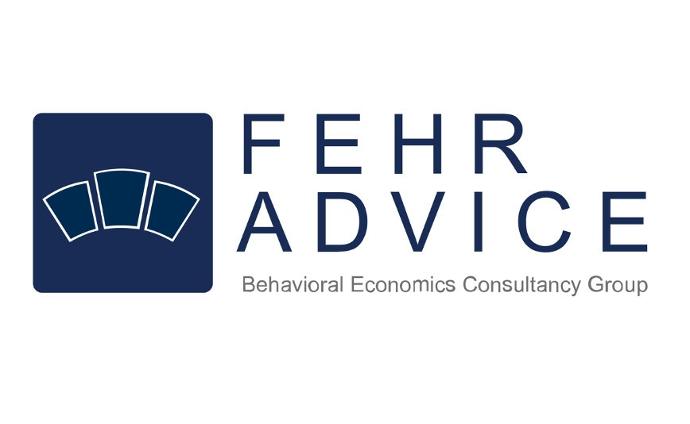Academy of Behavioral Economics 2017
Strategic Leadership im Spannungsfeld zwischen Regulierung und Wachstum
Strategic Leadership im Spannungsfeld zwischen Regulierung und Wachstum
Lange glaubte die Wirtschaftswissenschaft, der Mensch verhalte sich rational. Ein Irrtum, wie die verhaltensökonomische Forschung der vergangenen 30 Jahre eindrucksvoll gezeigt hat: Menschen neigen zu kognitiven Vereinfachungen, handeln entgegen ihrer eigenen Interessen, lassen sich massgeblich von anderen Menschen beeinflussen – kurz: Sie handeln in vielen Situationen irrational, und zwar systematisch: Sodass das irrationale Verhalten des Menschen prognostizierbar wird.
Die Erkenntnisse der Verhaltensökonomie revolutionieren nicht nur die Wissenschaft. Wer die richtigen Lehren aus typischen Verhaltensmustern zieht, erzielt daraus einen strategischen Vorteil für seine Organisation. Wie designt man High Performance Institutionen? Was sind mögliche Lösungsansätze für Unternehmen, um auf bestehenden und neuen Märkten zu reüssieren? Mit welchem Regulierungsdesign kann nachhaltiges Wachstum gefördert werden? Wie viel Regulierung ist nötig, wie wenig Regulierung ist möglich?
Die zweitägige Academy of Behavioral Economics 2017 richtet sich an Entscheider, Denker und Berater aus Wirtschaft, Politik und Gesellschaft. Sie gewährt Einblicke in die Rolle des nur beschränkt rationalen, menschlichen Verhaltens sowie dessen Konsequenzen für Unternehmen, Märkte und Gesellschaft. Dank Impulsreferaten der weltweit führenden Verhaltensökonomen, welche hier in einmaligem Rahmen ihre aktuellsten Forschungsergebnisse vorstellen, und Persönlichkeiten aus Politik, Wirtschaft und Verbänden erfahren die Teilnehmenden, wie ihr eigenes Verhalten sowie jenes ihrer Mitarbeitenden und Partner die Performance von Organisationen beeinflusst.
Ziel der Academy ist, dass die Teilnehmer die Erkenntnisse der Verhaltensökonomie in ihren eigenen Entscheidungen unmittelbar anwenden lernen.
Drei Gründe für eine Teilnahme:
- Die einflussreichsten Verhaltensökonomen aus dem internationalen Raum präsentieren Ihnen in einzigartigem Rahmen ihre aktuellsten Forschungsergebnisse
- Verschiedenste Persönlichkeiten aus der Praxis stellen sich dem kontroversen Dialog
- Sie lernen, wie die Erkenntnisse, wie sich menschliches Verhalten verändern lässt, gewinnbringend für Unternehmen sowie das (Re-)Design von Märkten genutzt werden können.
ReferntInnen

Thomas Bauer
Schweiz
Der promovierte Jurist ist seit dem 1. Januar 2016 Verwaltungsratspräsident der FINMA und hat den Vorsitz über den FINMA-Nominationsausschuss und den FINMA-Regulierungsausschuss. Er war von 1994 bis 2014 bei Ernst & Young tätig, seit 1998 als Partner. Die Schwerpunkte seiner Tätigkeit lagen im Insolvenz-, Bank-, Handels- und Rechnungslegungsrecht.

Beat Brechbühl
Schweiz
Dr. Beat Brechbühl, LL.M. (Univ. of Chicago) ist Managing Partner der Kanzlei Kellerhals Carrard. Er ist neben seiner Tätigkeit als Head des Corporate/M&A-Team als Verwaltungsrat in mehreren Gesellschaften tätig, u.a. präsidiert er die Flughafen Bern AG, hat einen Lehrauftrag für Entrepreneurship an der Universität Bern und engagiert sich in verschiedenen Gremien und Funktionen für die Eindämmung der Regulierungsdichte.

Armin Falk
Deutschland
Professor für Volkswirtschaftslehre und Direktor des Centers for Economics and Neuroscience sowie des Labors für Experimentelle Wirtschaftsforschung an der Universität Bonn. Falk studierte Volkswirtschaftslehre, Philosophie und Geschichte und promovierte 1998 bei Ernst Fehr (Universität Zürich), wo er 2003 auch habilitierte.

Dan Goldstein
USA
Principal Researcher bei Microsoft Research in New York. Goldstein erforscht das Online-Verhalten sowie die menschliche Entscheidungstheorie. Er verfügt über ein Doktorat in Psychologie der University of Chicago und ist gefragter Redner an Konferenzen und Management-Events.

Ernst Fehr
Schweiz
Professor der Mikroökonomik und experimentellen Wirtschaftsforschung. Fehr ist Direktor des Instituts für Volkswirtschaftslehre der Universität Zürich und Verwaltungsrat von FehrAdvice & Partners. Der «einflussreichste Schweizer Ökonom» (NZZ) ist Träger des Gottlieb Duttweiler Preises 2013.

Justus Haucap
Deutschland
Der Direktor des Düsseldorfer Instituts für Wettbewerbsökonomie, Prof. Justus Haucap, war 8 Jahre lang Mitglied der Monopolkommission des deutschen Bundestages, 4 davon als Vorsitzender. Seine Forschungsschwerpunkte liegen im Bereich der Wettbewerbsökonomie sowie der Regulierung infrastrukturbasierter Industrien wie Telekommunikation, Elektrizität und Verkehr. Er ist Mitglied des Wissenschaftlichen Arbeitskreises für Regulierungsfragen bei der Bundesnetzagentur.

Rasoul Jalali
Schweiz
Rasoul Jalali ist General Manager bei Uber und verantwortlich für Deutschland, Österreich und die Schweiz. Davor war er Unternehmensberater bei The Boston Consulting Group und Arthur D. Little. Er studierte Maschinenbau an der ETH in Zürich und besitzt einen MBA von der London Business School. Als Teil seines MBA absolvierte er ein Semester an der UC Berkeley Haas School of Business.

Katja Rost
Schweiz
Katja Rost ist Ordinaria für Soziologie und Privatdozentin für Wirtschaftswissenschaften an der Universität Zürich. Sie war als Juniorprofessorin für Organisationssoziologie an der Universität Mannheim und als Professorin für Management an der Friedrich-Schiller-Universität Jena tätig. Ihre Schwerpunkte liegen im Bereich der Wirtschafts- und Organisationssoziologie.

Rolf Dörig
Schweiz
Rolf Dörig ist Präsident des Verwaltungsrats der Swiss Life Holding und der Adecco Group AG. Seine berufliche Laufbahn begann er bei der Credit Suisse, wo er als Mitglied der Konzernleitung für das Firmenkunden- und Retailgeschäft in der Schweiz verantwortlich war. Später bekleidete er das Amt des Chairman Schweiz. Im November 2002 wurde Rolf Dörig Chief Executive Officer von Swiss Life und von 2008 bis 2009 Delegierter des Verwaltungsrats.

Rudolf Minsch
Schweiz
Prof. Dr. Rudolf Minsch ist Chefökonom und Mitglied der Geschäftsleitung von economiesuisse. Er leitet innerhalb des Dachverbandes der Schweizer Unternehmen den Bereich‚ Wirtschaftspolitik, Bildung, Gesundheit. In einem Nebenamt ist er für die Weiterentwicklung des volkswirtschaftlichen Simulationsmodells SwissSim im Rahmen der Weiterbildungsstufe der Universität St. Gallen verantwortlich und ist dort auch als Referent tätig. Seit etlichen Jahren arbeitet Rudolf Minsch mit verschiedenen Partnern zusammen in der angewandten Forschung mit den Schwerpunkten Geldpolitik, Zahlungsverkehrssysteme, Tourismus und Aussenhandelspolitik.

Anita Roth
Schweiz
Anita Roth ist Stadtplanerin, deren Arbeit sich massgeblich um Planung, Policy und Entwicklung dreht. Als Head of Policy Research bei Airbnb quantifiziert Frau Roth die unterschiedlichen Einflüsse und Vorteile der Airbnb Community auf sämtliche Städte der Welt. Sie besitzt Abschlüsse der University of California in Berkeley sowie der Cornell University und hat für Beratungsunternehmen und Stadtgemeinden gearbeitet.

Jean-Robert Tyran
Österreich
Professor für Volkswirtschaftslehre an der Universität Wien sowie Direktor des Wiener Zentrums für Experimentelle Wirtschaftsforschung. Er forscht zur Frage, wie beschränkte Rationalität und soziale Präferenzen Wirtschaft, Gesellschaft und Staat beeinflussen – und umgekehrt.

Matthias Sutter
Deutschland
Direktor am Max-Planck-Institut zur Erforschung von Gemeinschaftsgütern, Professor für experimentelle Wirtschaftsforschung an den Universitäten Köln und Innsbruck. Sutter gehört in Europa zu den bekanntesten Wissenschaftlern des Fachs. Er forscht schwergewichtig zu Gruppenentscheidungen und zur Frage, wie sich ökonomisches Entscheidungsverhalten im Jugendalter verändert.

Gerhard Fehr
Schweiz
CEO und Executive Behavioral Designer bei FehrAdvice & Partners. In seinen Funktionen berät Fehr Politiker, Verwaltungs- und Aufsichtsräte, CEOs und Top-Manager grosser Unternehmen. Seine Mission ist es, Unternehmen und die Politik experimentierfähig zu machen. Fehr ist Absolvent der Universität Wien in Betriebswissenschaftslehre und hat mehr als 10 Jahre Managementerfahrung.

Axel A. Weber
Schweiz
Axel A. Weber wurde anlässlich der Generalversammlung 2012 in den UBS-AG-Verwaltungsrat und im November 2014 in den UBS-Group-AG-Verwaltungsrat gewählt. Er ist zugleich Verwaltungsratspräsident der UBS AG und der UBS Group AG. Er ist seit 2012 Vorsitzender des Governance and Nominating Committee und seit 2013 Vorsitzender des Corporate Culture and Responsibility Committee.

Boris Zürcher
Schweiz
Boris Zürcher ist Leiter der Direktion für Arbeit im SECO. Zuvor war Zürcher Chefökonom und Direktor von BAK Basel Economics AG, von 2007 bis 2012 Chefökonom und Vizedirektor bei Avenir Suisse, Think Tank for Economic and Social Issues. In den Jahren 2002 bis 2007 beriet Zürcher die Bundesräte Pascal Couchepin, Joseph Deiss und die Bundesrätin Doris Leuthard im Eidgenössischen Volkswirtschaftsdepartement in wirtschaftspolitischen Themen.
Programm
Donnerstag, 26. Januar 2017
Die Teilnehmer gewinnen in der ersten Session ein grundsätzliches Verständnis für den oft beschränkt rational handelnden Menschen und erkennen, was und insbesondere in welchen wirtschaftlich relevanten Situationen irrationale Verhaltensmuster vorwiegend zu finden sind. Die Verhaltensökonomie kann mit ihrem realitätsnahen Verständnis das menschliche Verhalten genauer vorhersagen und ermöglicht damit in letzter Konsequenz bessere Umsetzungserfolge und eine höhere Performance von Unternehmen und Institutionen.
Dieses auf Evidenz basierte Wissen ist entscheidend für die Themengebiete Leadership, Culture und Compliance (Session 2). Dies sind die Grundpfeiler der Reputation, dem wichtigsten Gut einer High Performance Institution. Ein wesentliches Ziel der Academy ist aufzuzeigen, dass die entsprechende Unternehmenskultur wichtiger ist als jede Strategie!
14.00 Uhr
Session 1: Verhalten verstehen: Grundlagen der Verhaltensökonomie
Katja Stauber
Begrüssung
Matthias Sutter
Einführung in die Behavioral Economics Academy 2017
Ernst Fehr
Identität und soziale Normen
Armin Falk
Soziale Präferenzen
Dan Goldstein
Smart Data
15.45 Uhr
Pause
16.15 Uhr
Session 2: Leadership, Culture & Compliance
Jean-Robert Tyran
Kognitive Fähigkeiten und Biases bei Management Entscheidungen
Ernst Fehr
Messen und Implementieren von gewünschten Normen als Basis einer nachhaltigen Unternehmenskultur
Katja Rost
CEO-Vergütung und die Gesellschaft
Podiumsdiskussion
moderiert von Katja Stauber
18.15 Uhr
Pause
19.00 Uhr
Abendessen
mit Keynote von Cass Sunstein
Freitag, 27. Januar 2017
Der zweite Tag der Academy steht ganz im Zeichen der zentralen Fragestellung, wie im regulatorischen Umfeld den Anforderungen des globalen Wettbewerbs und neuer Märkte Rechnung getragen werden kann. In der dritten Session werden die Rahmenbedingungen diskutiert: Wie können Märkte (re-)designed werden, um dieses Spannungsfeld und damit die Funktionsfähigkeit sichergestellt werden? Wo finden sich optimale Lösungen zwischen «Swiss Finish Perfektion» und Standort- resp. Konkurrenzfähigkeit?
Insbesondere die Finanzindustrie ist geprägt von steigenden regulatorischen Anforderungen und dem Zwang innovativer Lösungen. Die Session 4 beleuchtet deshalb die Zielsetzung und Politik der FINMA sowie die Beurteilung der wichtigsten Marktteilnehmer, welche gleichzeitig von vielen Fintech Startups und Markteintritten gewichtiger Technologieriesen (Bsp. ApplePay) bedrängt werden.
Die Academy fördert den Dialog zwischen Wirtschaft, Wissenschaft und Politik übergreifend: Führende Politiker und Praktiker stellen weitere Denkansätze sowie Strategien vor (Session 5) und betonen nicht nur die Relevanz funktionierender Märkte, sondern erweitern den Fokus um die Tatsache, dass durch disruptive Geschäftsmodelle typischerweise neue Märkte und Wertschöpfungsketten entstehen, welche sich der bestehenden Regulierung noch entziehen.
08.30 Uhr
Session 3: Regulierung und Wettbewerb – zwei Seiten der gleichen Medaille
Florian Inhauser
Begrüssung
Gerhard Fehr
Die verhaltensökonomischen Grundlagen effizienter Regulierung
Beat Brechbühl
Smart Regulation please
Justus Haucap
Big Data & unternehmerische Preispolitik
10.00 Uhr
Pause
10.30 Uhr
Session 4: Schwerpunkt Finanzmarkt
Thomas Bauer
Zielsetzung und Prioritäten der FINMA
Rolf Dörig
Versicherungen im Wandel – Wachstum vs. Regulierung?
Axel Weber
Aktuelle Herausforderungen für die Banken
Podiumsdiskussion moderiert von Florian Inhauser
12.00 Uhr
Netzwerklunch
14.00 Uhr
Session 5: Lösungsansätze
Boris Zürcher
Flexible Arbeitsmärkte unter Druck von Migrationsströmen
Anita Roth
How new business models push regulators to re-evaluate policy objectives
Rasoul Jalali
«Uberisierung» als Lernspiel und Innovationsmotor
Rudolf Minsch
Kann die Regulierungsflut eingedämmt werden?
15.45 Uhr
Pause
16.15 Uhr
Session 6: Conclusio
Podiumsdiskussion moderiert von Fabian Inhauser
Keynote von Ernst Fehr
17.15 Uhr
Ausklang bei gemeinsamem Abschlussapéro
Informationen
Datum
26. Januar - 27. Januar 2017
Veranstaltungsort
Preise
Early Bird Special Eagle: CHF 3200.00 (bis 15. Juli 2016)
Early Bird Special Hawk: CHF 3700.00 (bis 30. September 2016)
Early Bird Special Owl: CHF 4150.00 (ab 1. Oktober 2016)
Die Teilnahmegebühr ist im Voraus zu bezahlen. Im Preis inbegriffen sind alle Speisen und Getränke (inkl. MWSt), exkl. Übernachtung. Kurzfristige Anmeldungen (später als zwei Wochen vor dem Anlass) können nur mit Kreditkarte bezahlt werden.
TeilnehmerInnenliste
Dokumentation
Bilder
Über die Academy of Behavioral Economics
Die Academy of Behavioral Economics richtet sich an Entscheider, Denker und Berater aus Wirtschaft, Politik und Gesellschaft und wird in Kooperation mit dem Beratungsunternehmen Fehr Advice durchgeführt. Die Academy gewährt Einblicke in die Rolle des nur beschränkt rationalen, menschlichen Verhaltens sowie dessen Konsequenzen für Unternehmen, Märkte und Gesellschaft. Dank Impulsreferaten der weltweit führenden Verhaltensökonomen, welche in einmaligem Rahmen ihre aktuellsten Forschungsergebnisse vorstellen, und Persönlichkeiten aus Politik, Wirtschaft und Verbänden erfahren die Teilnehmenden, wie ihr eigenes Verhalten sowie jenes ihrer Mitarbeitenden und Partner die Performance von Organisationen beeinflusst.
Vergangene Konferenzen
Academy of Behavioral Economics 2020
Trust and Facts: Better Decisions in an Age of Growing Populism
Academy of Behavioral Economics 2019
Bessere Entscheidungen im Zeitalter von Künstlicher Intelligenz
Academy of Behavioral Economics 2021
Remote Leadership: Scientific Evidence, Facts & Solutions
Datum & Uhrzeit
Donnerstag
26. Januar 2017
Freitag
27. Januar 2017
Ort
GDI Gottlieb Duttweiler Institute
8803 Rüschlikon
Schweiz
